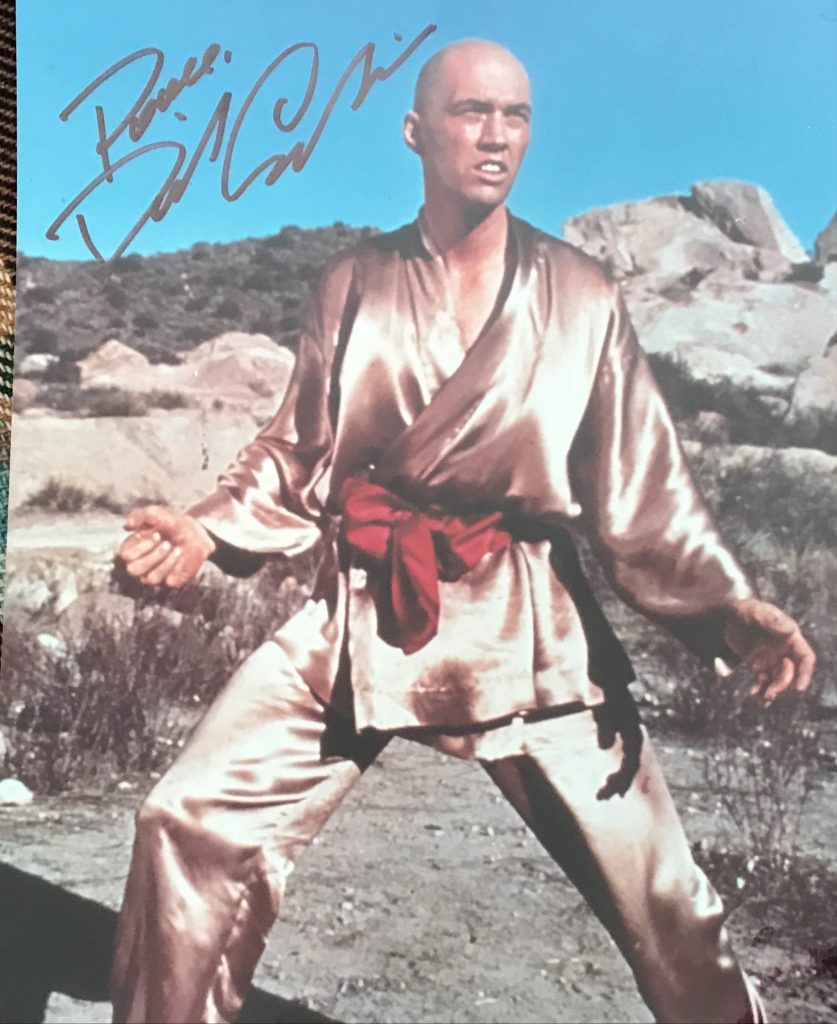
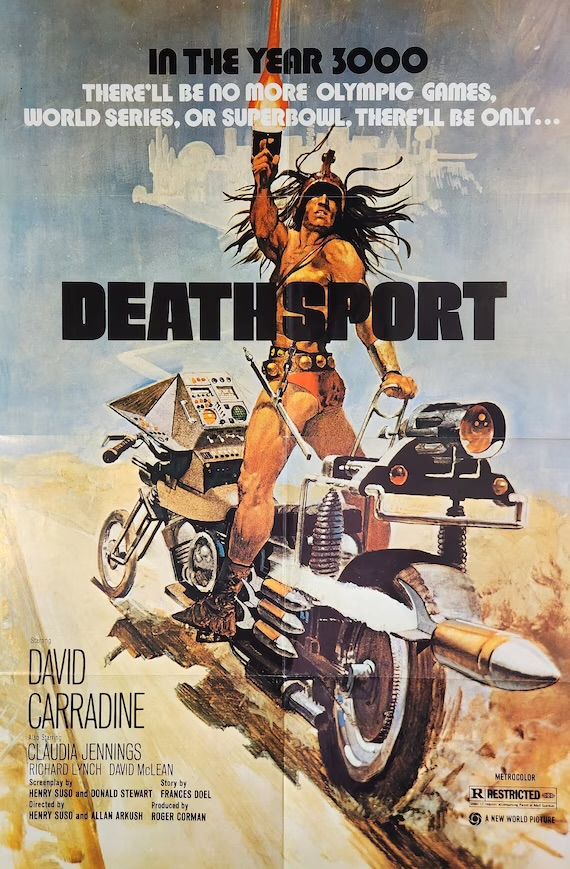

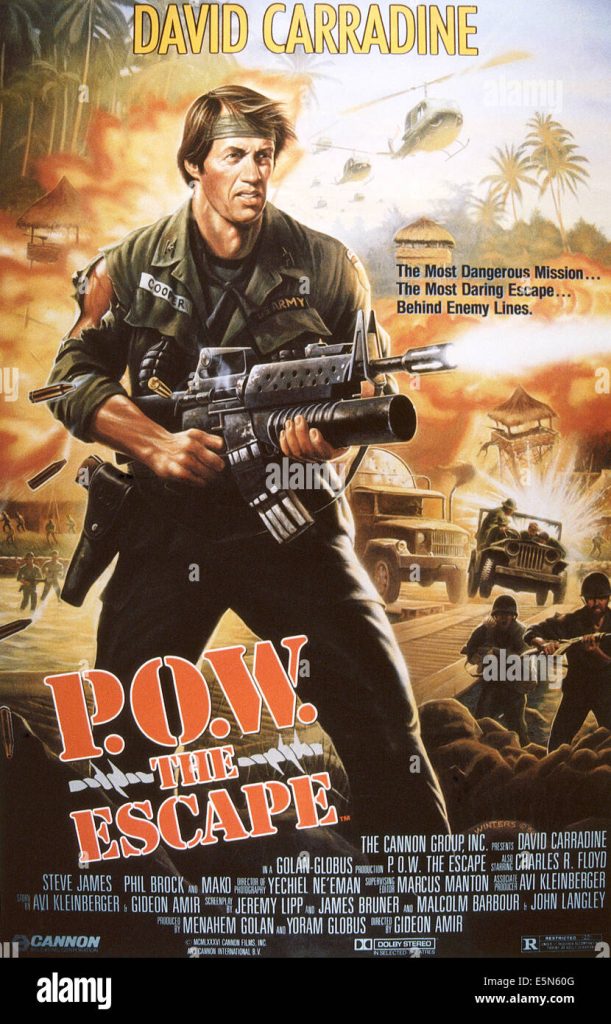
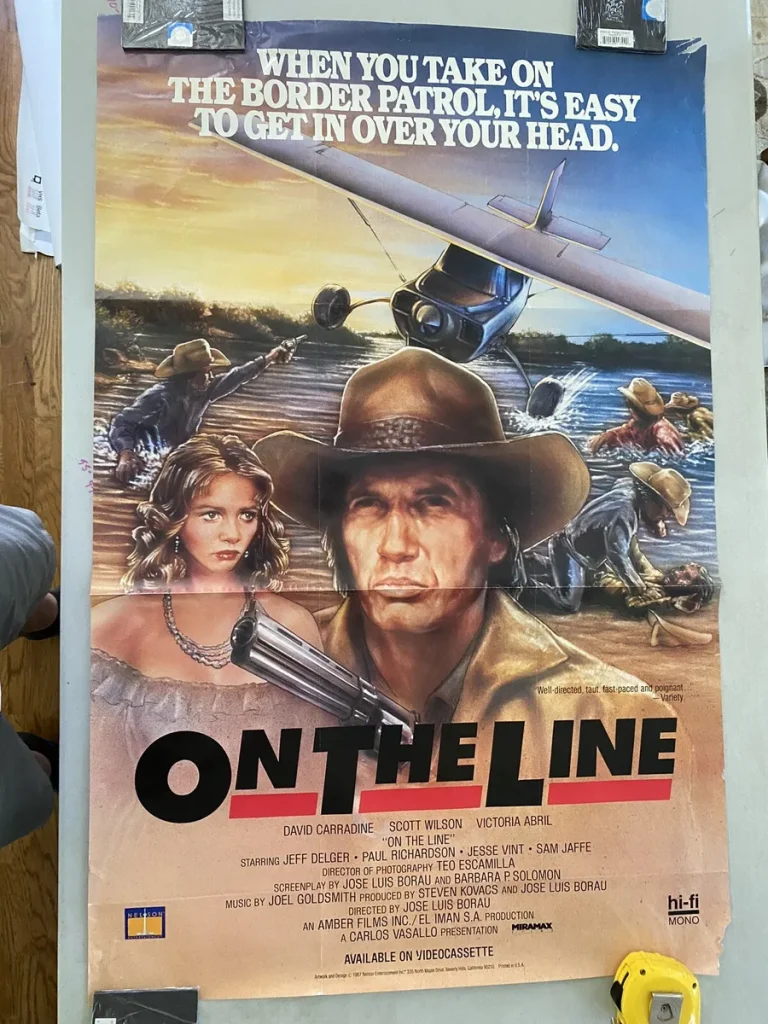
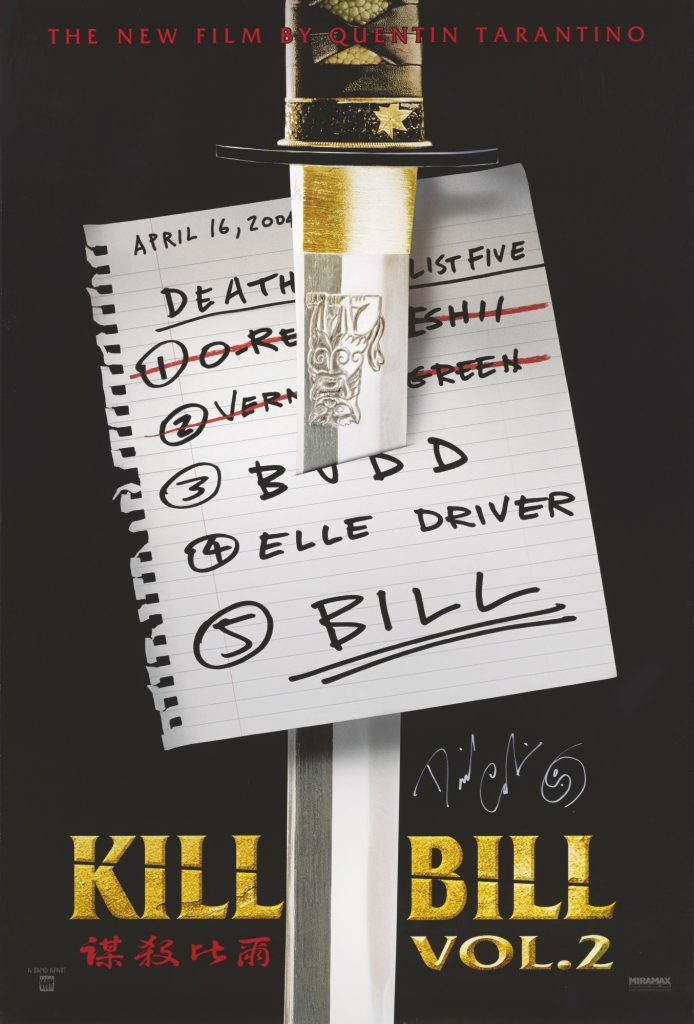
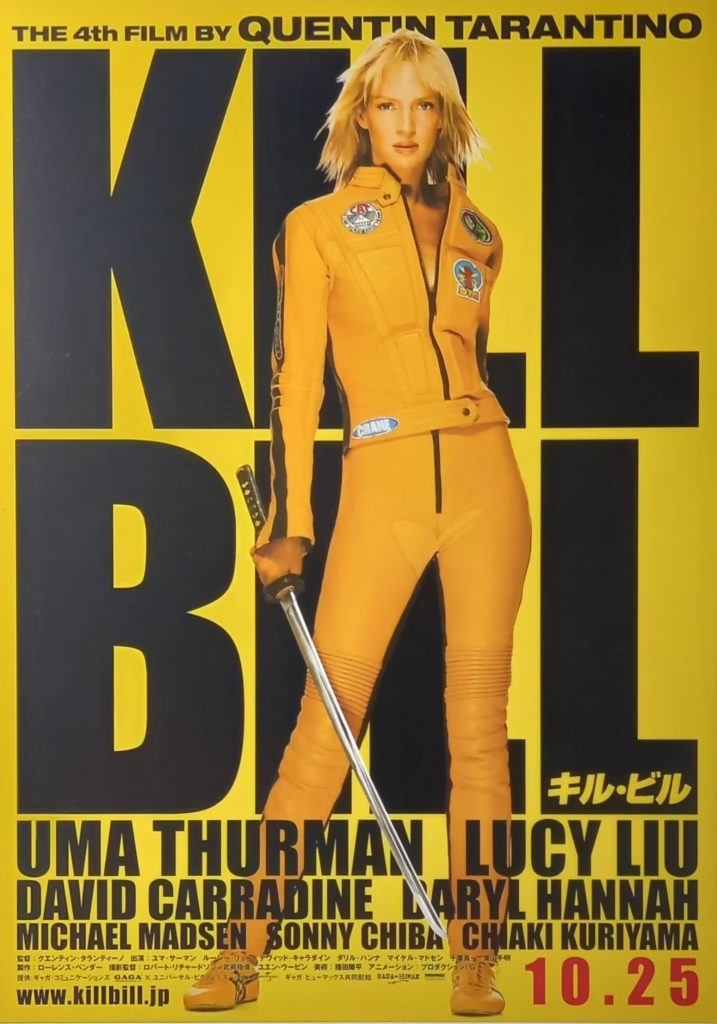
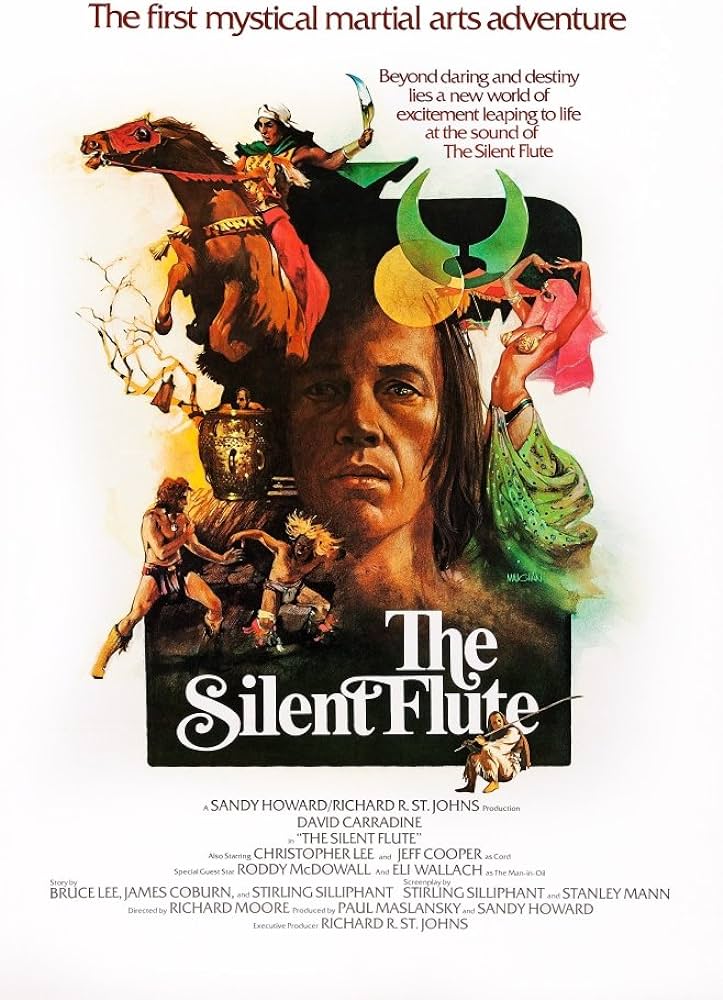
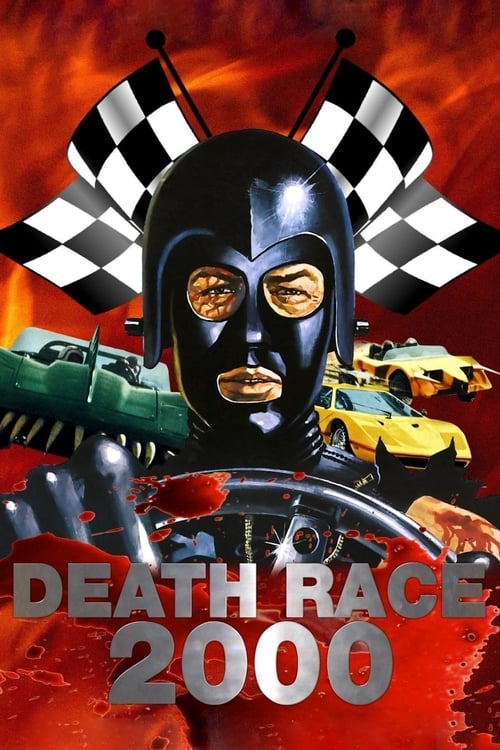
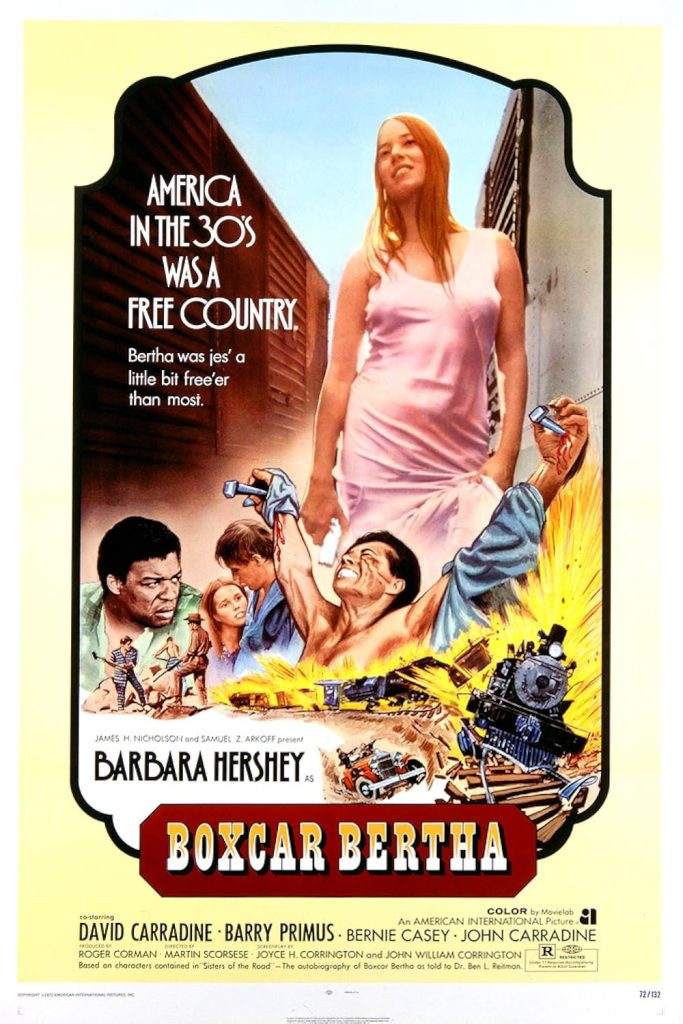
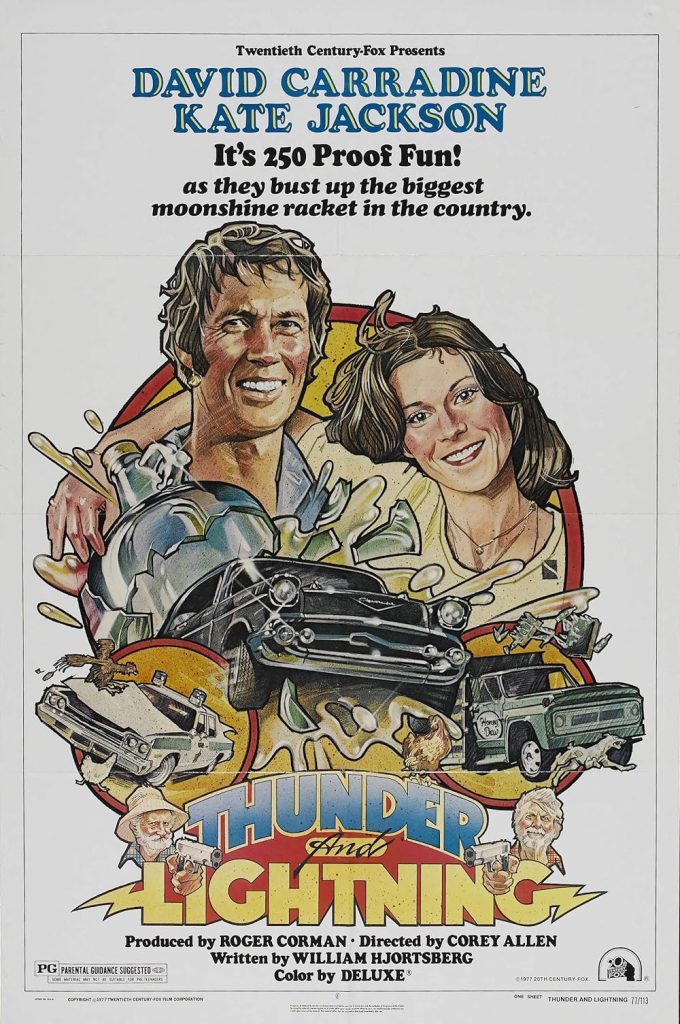
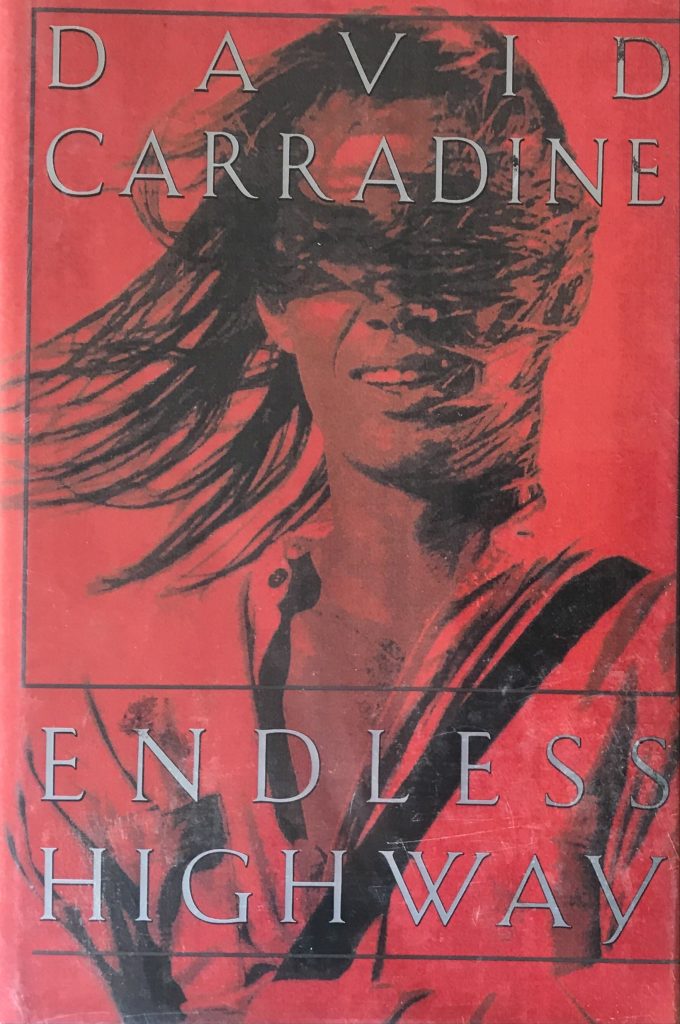
David Carradine was a gifted actor with a decidedly wild streak. He was one of the sons of the great character actor John Carradine. His other actors brothers are Keith Caddadine and Robert Carradine. David was born in 1936 in Hollywood. He appeared in over 100 films. His first major acting break came when he was cast in the stage production of “The Royal Hunt of the Sun”. In 1972 Martin Scorsese cast him in “Boxcar Bertha” and his film career got underway. Between 1972 and 1975 he starred on TV in the very popular “Kung Fu” series as a Shaolin monk. In 1980 he starred with his brothers and Stacy & James Keach in “The Long Riders”. His career was revived in a major way with Quentin Tarentino’s “Kill Bill”. Sadly David Carradine died in Bangkok in 2009 while on location filming.
“Guardian” obituary:
A member of a distinguished Hollywood family, the actor David Carradine, who has been found dead at the age of 72, was never exactly a star, but had a sporadically interesting film and television career.
The first, and biggest, of his career peaks came with the television series Kung Fu (1972-75), a huge cult hit, mixing western action with eastern philosophy – a long and abiding interest for the actor – in a way that was novel at the time. His character, Kwai Chang Caine, was a Shaolin monk wandering the American west. It was a sad irony that Carradine was to die in the Buddhist centre of Bangkok, Thailand, in what is believed to be a suicide. Originally a TV movie, Kung Fu grew into a show that lasted for 46 episodes.
By the time the series began, Carradine was already 36. After leaving San Francisco State College, he had been a soldier, commercial artist and stage actor. He had appeared in Shakespearean rep and on Broadway, notably in Royal Hunt of the Sun (1965), as the Inca chief Atahualpa. From the early days, he played a variety of races, and his counter-cultural credentials were established with roles in Martin Scorsese’s first film, Boxcar Bertha (1972), and (uncredited) in the director’s celebrated Mean Streets (1973) as a memorable drunk in a ruckus in a bar.
A co-star in the former was Barbara Hershey, his partner in the Kung Fu days. This was a hippie affair – she changed her name to Barbara Seagull, and their child was named Free. They never married, but Carradine was to wed five times. There were two other children and four divorces before his final wife, Anne Bierman.
Though he was born John Arthur Carradine in Hollywood, the name David distinguished him from his actor father John Carradine, a grand old man of Hollywood who claimed to have appeared in more movies than any contemporary. David was his eldest son. When Walter Hill came to make The Long Riders, a 1980 film about the James and Younger gangs, he drew on four different acting families. David topped the bill as Cole Younger, alongside his half-brothers, Keith and Robert.
Carradine’s career took in more than 200 film and TV credits. He started mainly in westerns, playing the title role in a series based on the hit film Shane in 1966. Other memorable movies included Robert Altman’s radical reworking of The Long Goodbye (1973, again uncredited), and the lead in the exploitation film Death Race 2000 (1975), also starring Sylvester Stallone. He was nominated for a Golden Globe for his portrayal of Woody Guthrie in Bound for Glory (1976), which also showcased his abilities as a singer, a talent shared with his brother Keith, who played a country singer in Nashville (1975).
David was in Ingmar Bergman’s The Serpent’s Egg (1977), but his star waned after the 1970s, assisted by a gonzo reputation. In 1989 he served 48 hours in jail for drink-driving. Q: The Winged Serpent (1982) gave him a rare interesting part, and he appeared in 12 episodes of the TV mini-series North and South (1985-86), which brought him another Golden Globe nomination. He was to revisit his Kung Fu character again from time to time, in Kung Fu: The Movie (1986) and the TV series Kung Fu: The Legend Continues (1993-97). “Every day,” he once said of the role, which won him several Emmys, “at least six people will come up to me and say ‘Your show changed my life’.”
The actor also turned his hand to directing, initially on the Kung Fu series and in three other feature films, You and Me (1975), Mata Hari (1978) and Americana (1983). But his career had been in the doldrums for some time when the celebrated occupation-reviver Quentin Tarantino cast him in the title role of Kill Bill, Vol 1 and 2 (2003-04), a demonic character that leaned heavily on a screen personality that was freewheeling, laconic, always tending towards the maverick outsider. Carradine said it was as close to him as any part he had played, and it provided him with another onscreen musical number, The Legend of Pai Mai. The director had thought of him for some time: “He wanted it to be a revelation to the world that he would show me like people don’t know me,” Carradine explained. Tarantino drew inspiration from Carradine’s huge autobiography, Endless Highway (1995).
More recently, he was a kung-fu master in a Jonas Brothers video and played a 100-year-old Chinese gangster in the just released Crank: High Voltage. The role, like all of his memorable parts, fitted his personality as an Irish-American with a little Cherokee blood. “I’m like a renegade and that rubs people wrong,” he said.
He is survived by Annie; two daughters, Calista and Kansas, by his first two wives; and Free, later known as Tom.
• David (John Arthur) Carradine, actor, born 8 December 1936; died 4 June 2009
His “Guardian” obituary can also be accessed here.


